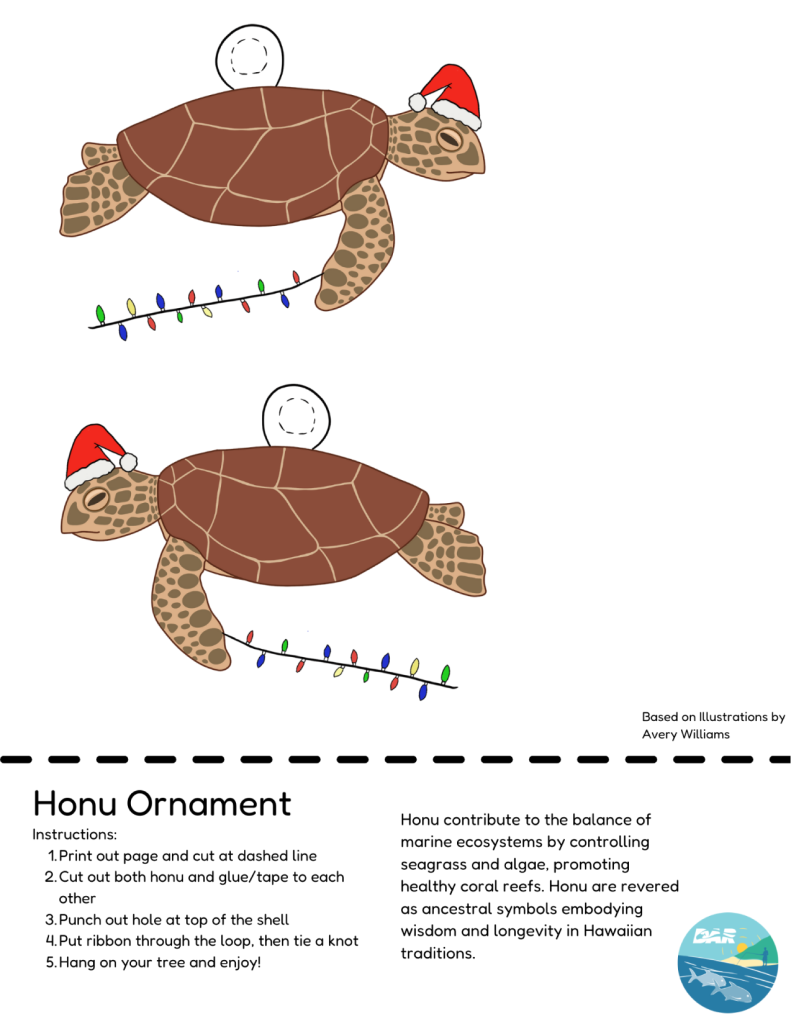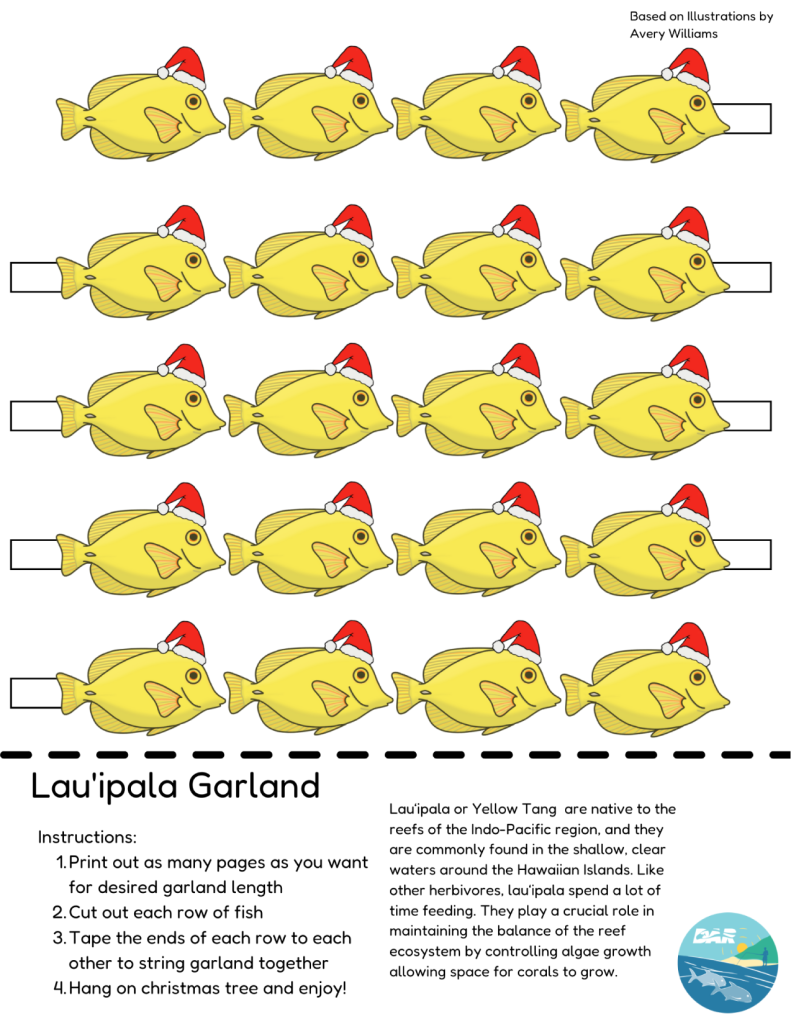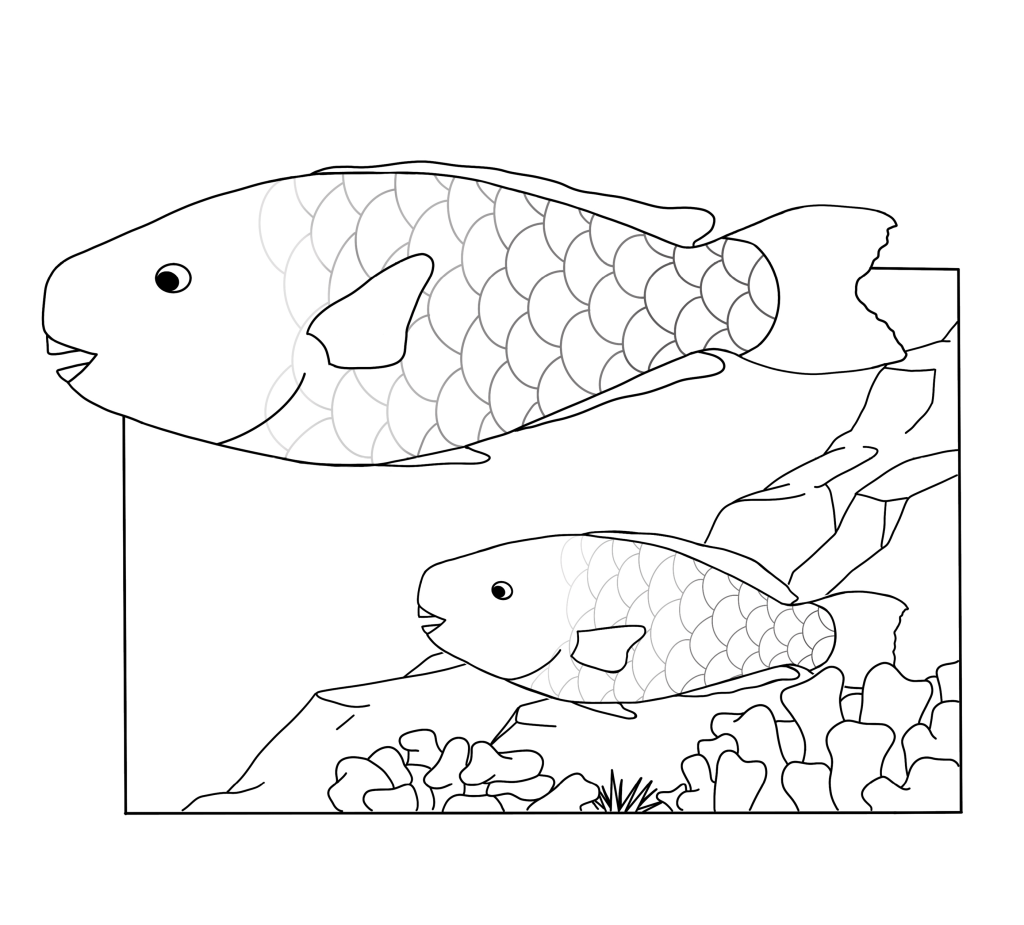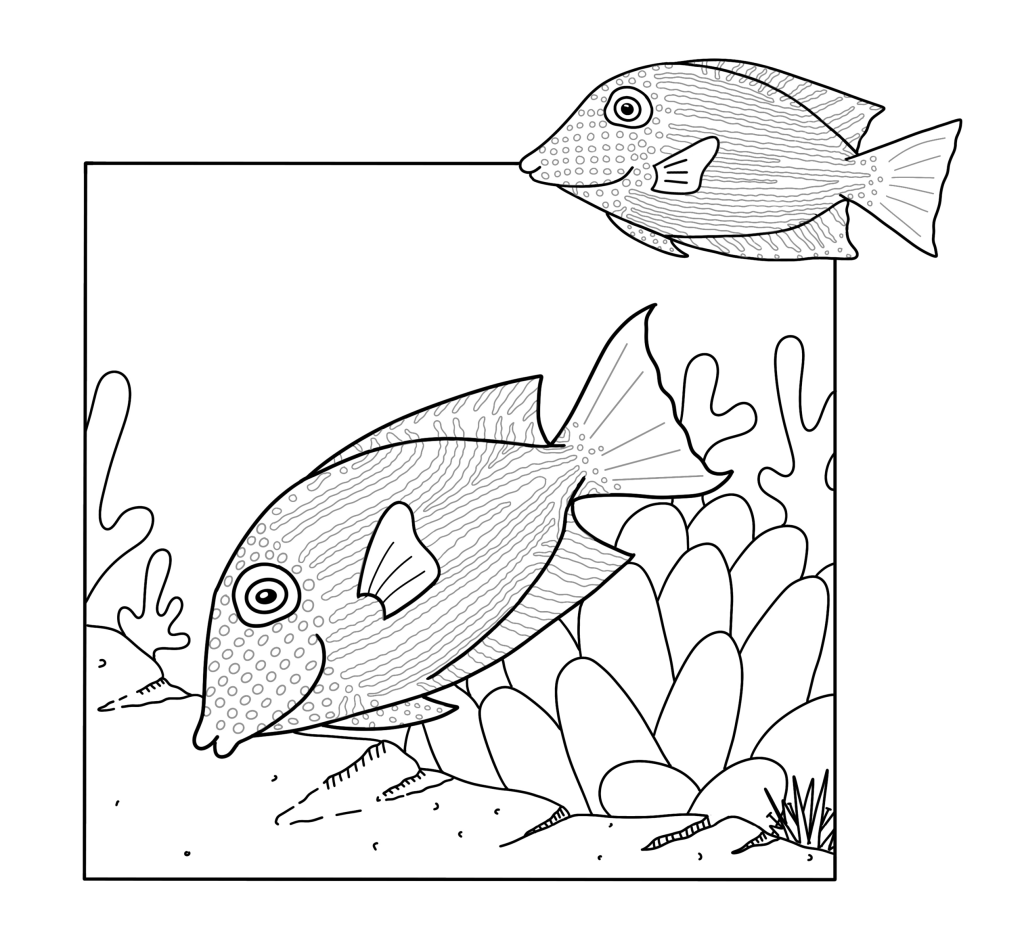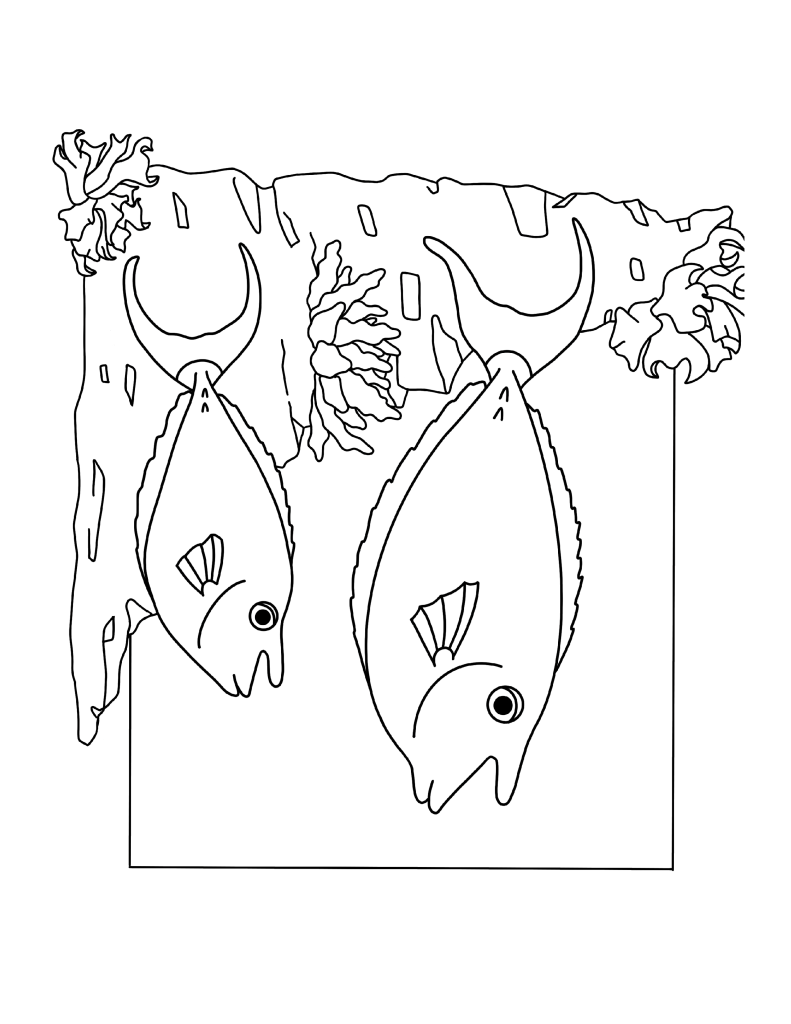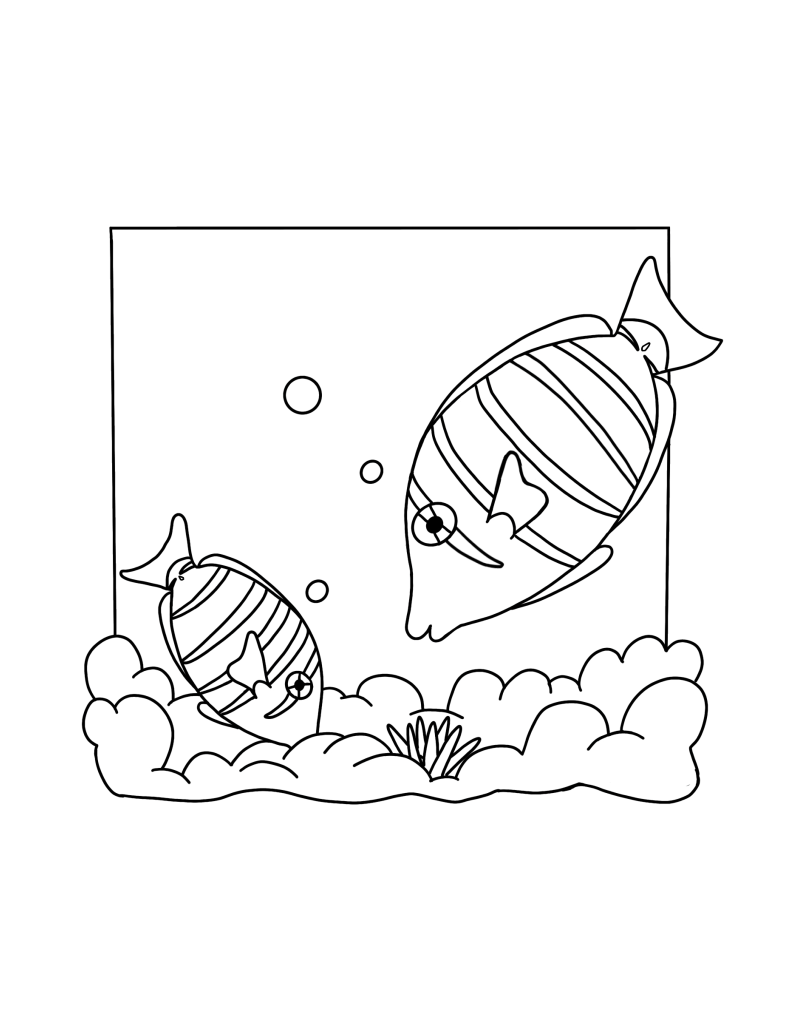Keiki Corner
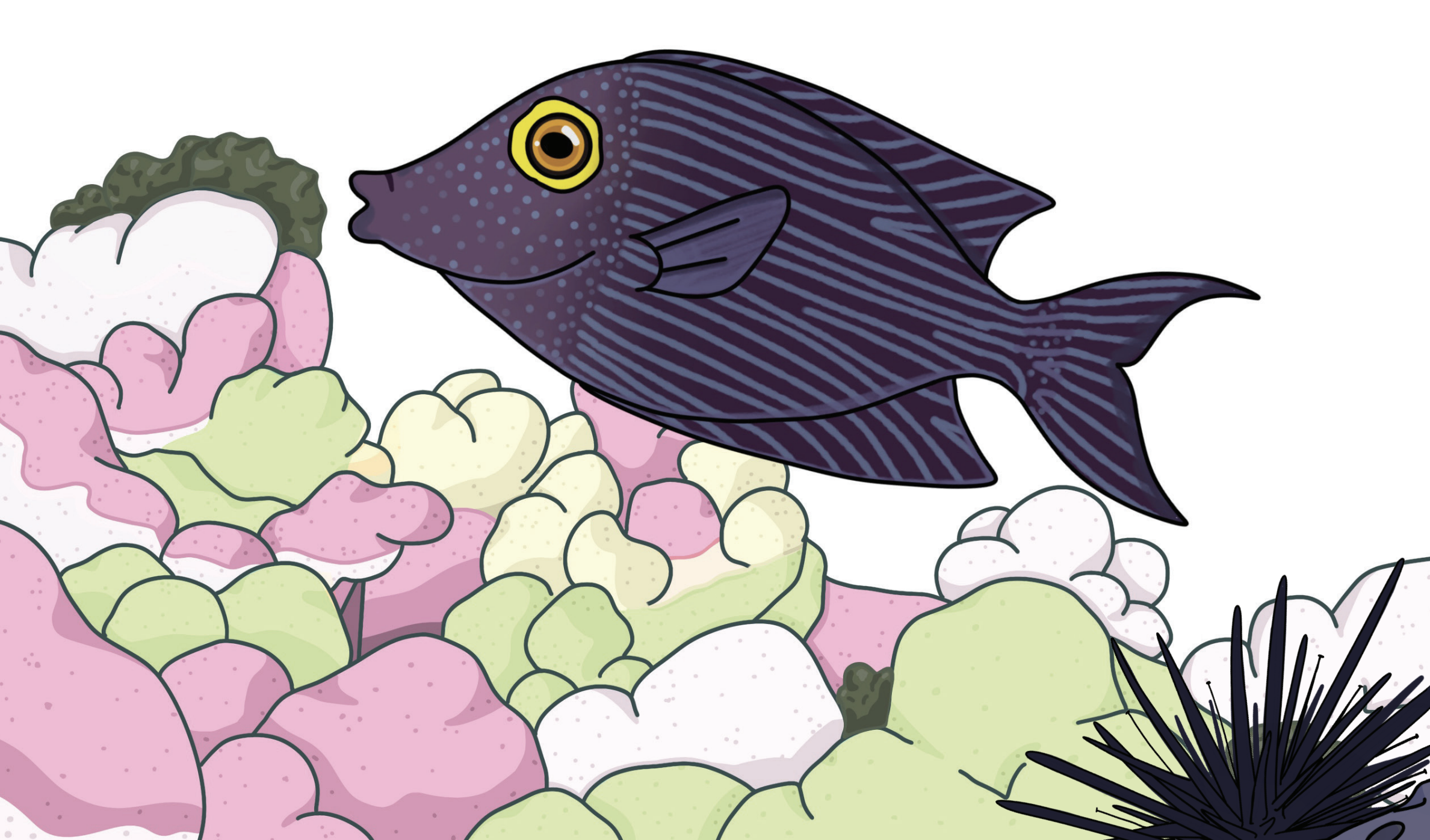
Keiki Corner
Holiday Keiki Crafts!
Happy Holidays! To celebrate, try making your own ocean-themed decorations. You can make a garland using colorful reef fish like the lauʻīpala (Yellow Tang). You can also create ornaments shaped like a honu (sea turtle) or a manō lalakea (White-tip reef shark)!
Click on any picture above, or here to download a PDF with lots of holiday activities for the whole family! All this beautiful, festive artwork is by Avery Williams and brought to life by the talented Claire Generous!
Herbivore Activity Book
Download and print our Herbivores: Gardeners of the Reef keiki activity and coloring book! Mahalo to Leilani Franco-Mar for the ʻōlelo Hawai‘i translations, check below for the ʻōlelo version.
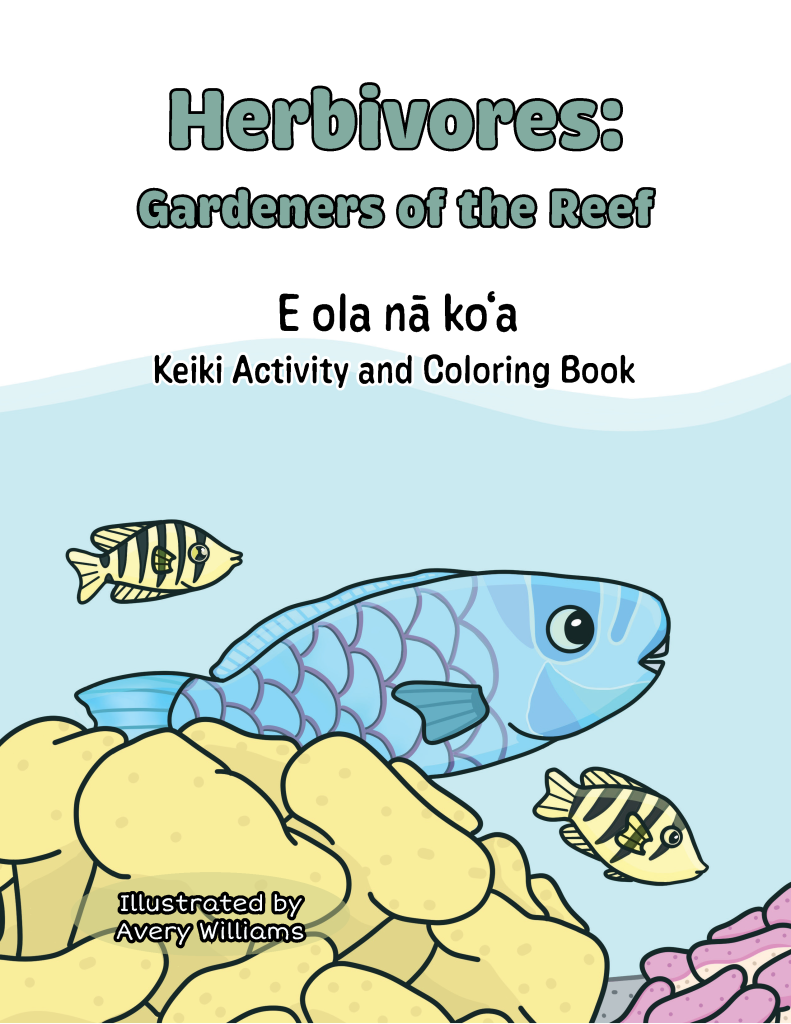

Kuʻi ka lono!
ʻAkahi a paʻi ʻia ka puke ʻōlelo Hawaiʻi ʻo Nā Iʻa Hamulimu: Nā Mahi ʻai o ka ʻĀpapa. He puke haʻawina a he puke kala kēia na nā keiki. Mahalo iā Leilani Franco-Mar i ka unuhina
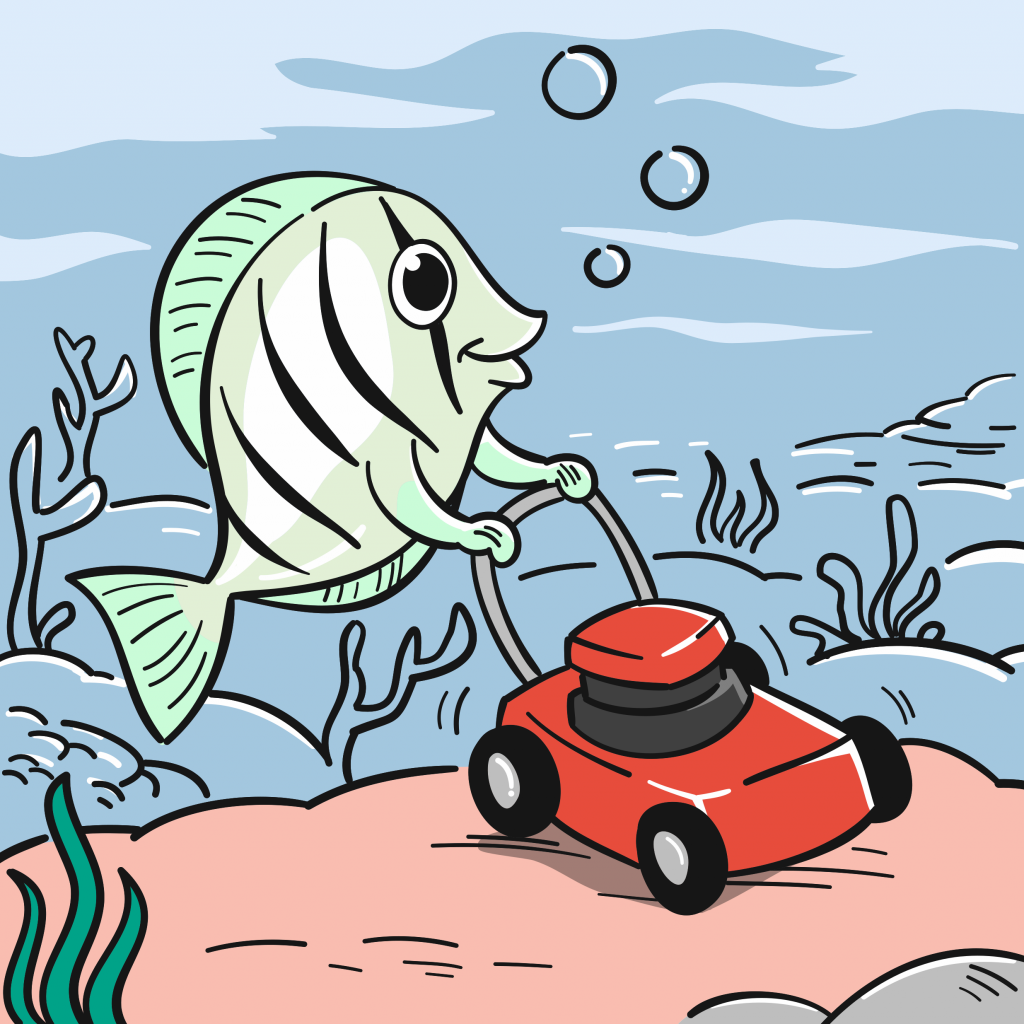
What are herbivore fish?
They are fish that eat algae as their main source of food. Herbivores eat the algae and keep it from overgrowing, helping it to stay in balance on the reef. They are like the coral reef’s natural gardeners! The uhu (parrotfish) and kole (Goldring Surgeonfish) are two examples of herbivore fish.
Click below to make some fun finger puppets!


Click below to download an uhu, kole, kala, or manini coloring page!
2023 Herbivore Coloring Contest
Congratulations to the winners of our 2023 Herbivore Coloring Contest! We received such beautiful submissions that were so creative and really brought our coral reefs to life. Keiki 8 and under submitted a colored illustration of our Manini or Kala coloring page, and keiki 9-12 entered the contest by submitting a personal drawing of their favorite herbivore fish. Mahalo nui to all those who participated! Click below to view the winning entries!





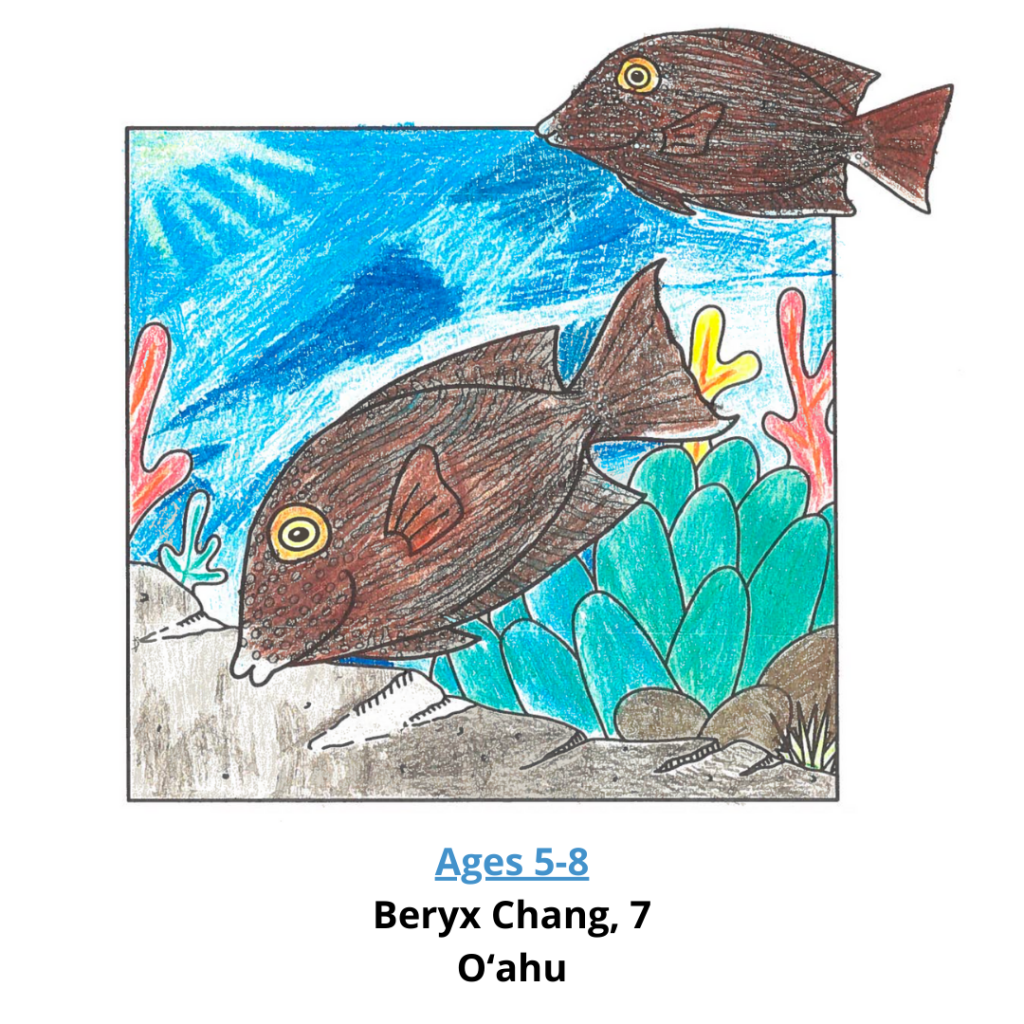



2022 Herbivore Coloring Contest
Congratulations to the winners of our 2022 Herbivore Coloring Contest! We received such amazing submissions that were so full of color and life – just like our coral reefs. Keiki 8 and under submitted a colored illustration of our Manini or Kala coloring page, and keiki 9-12 entered the contest by submitting a personal drawing of their favorite herbivore fish along with a short statement on why they are important in our reefs. Click below to view the winning entries!
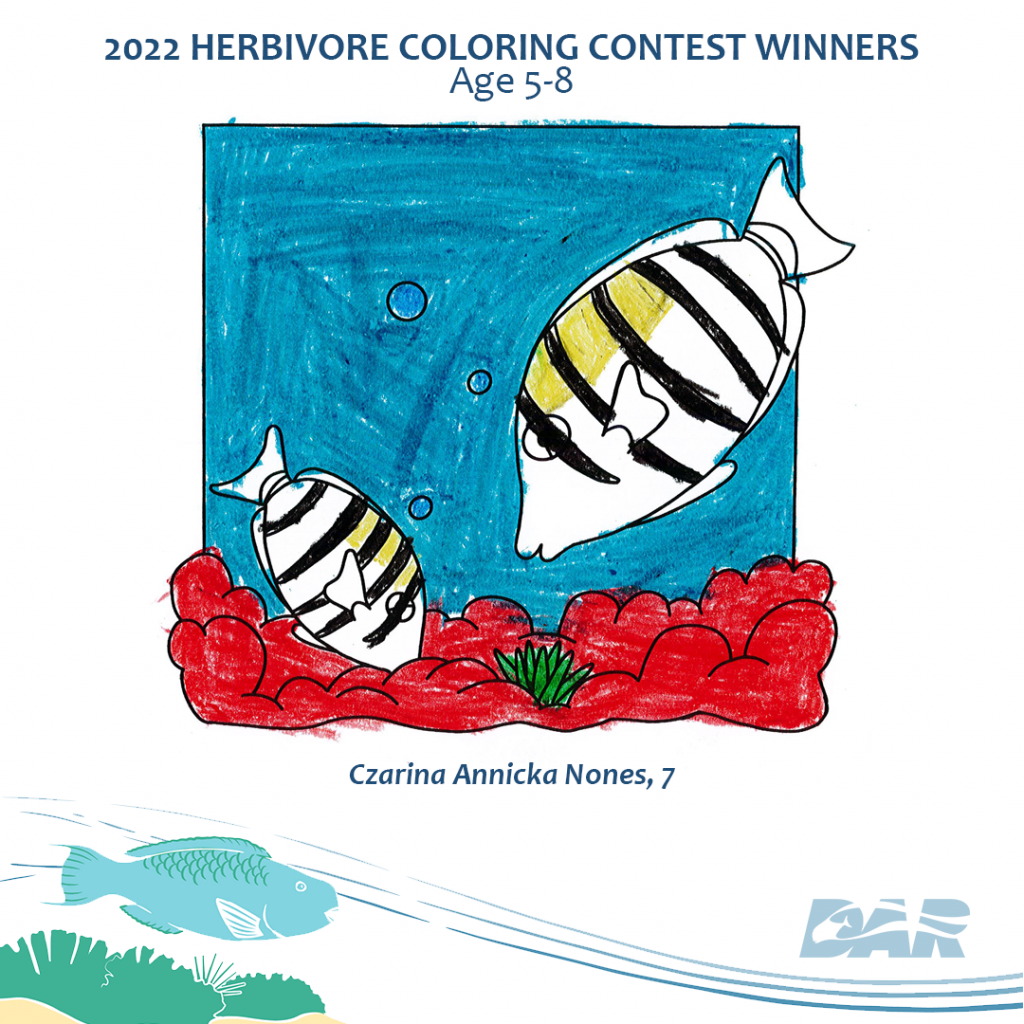
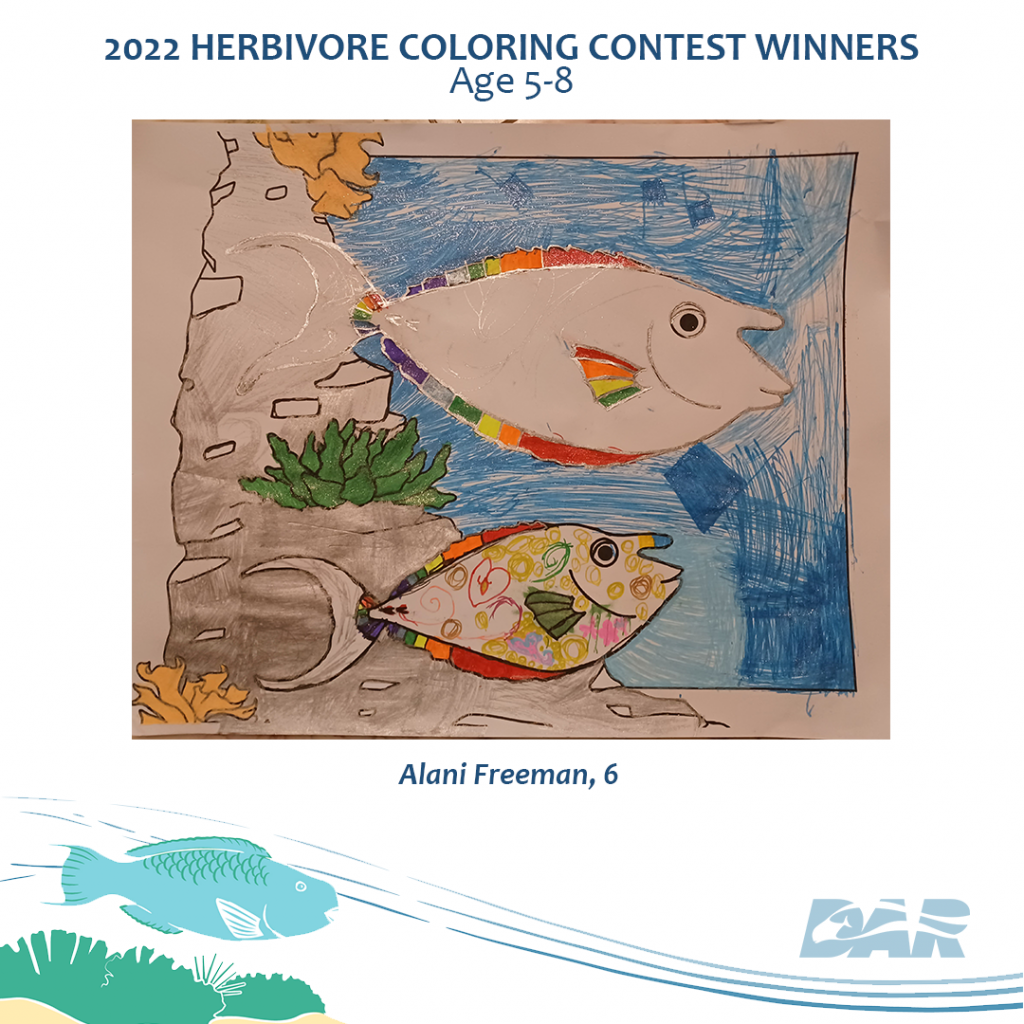
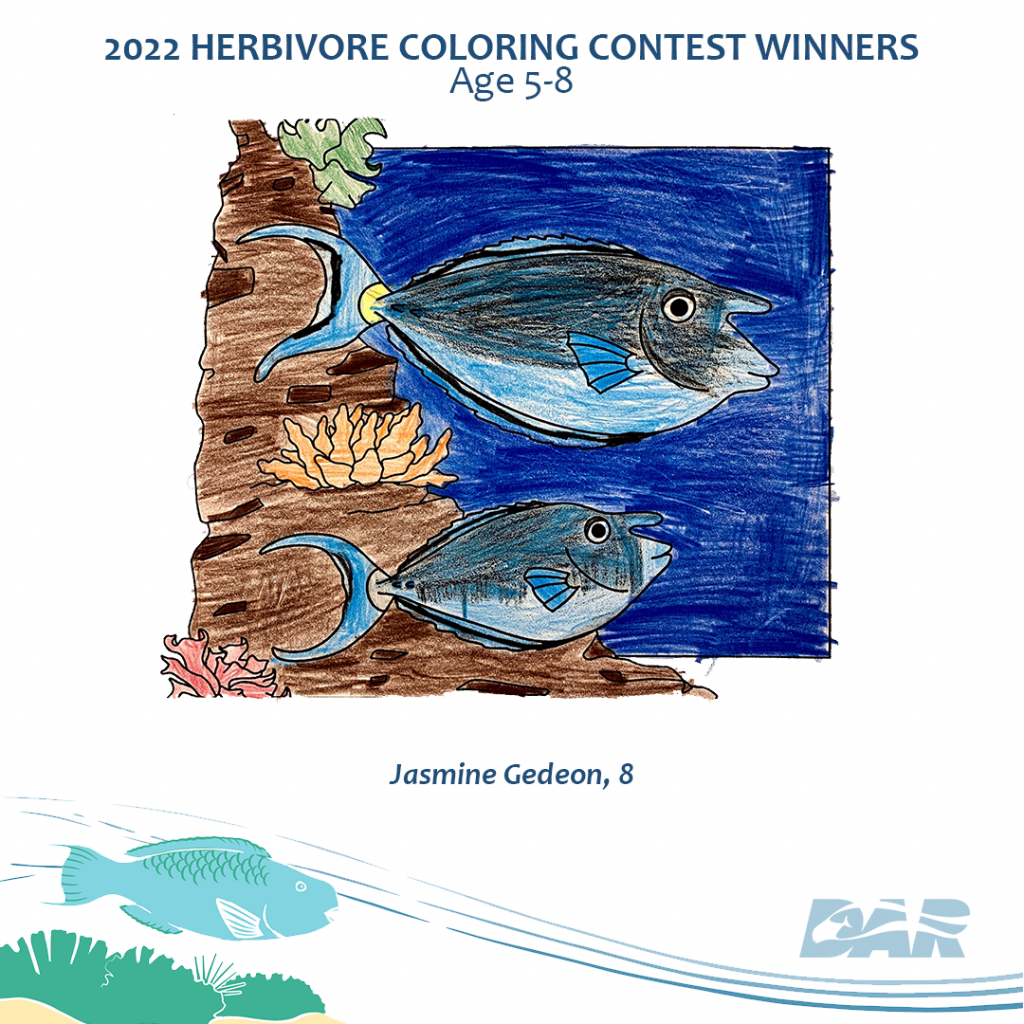
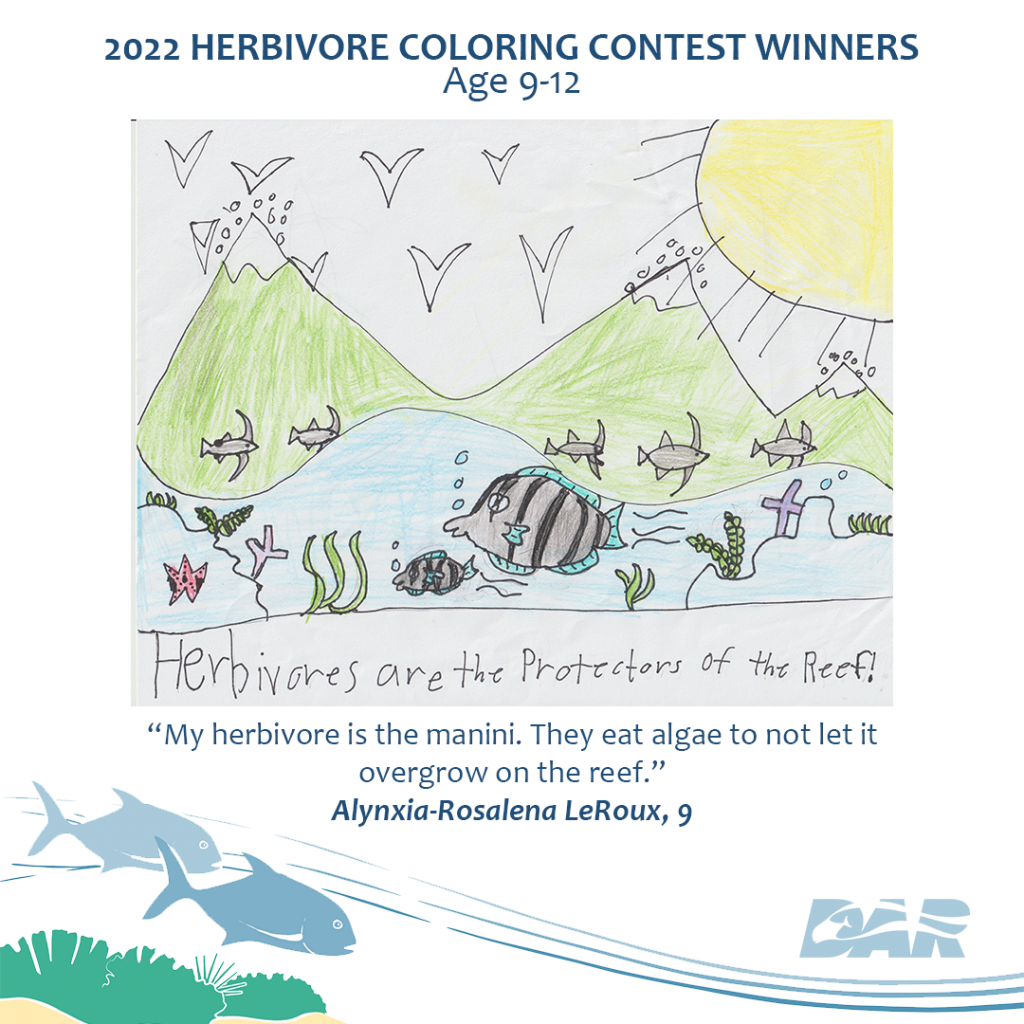
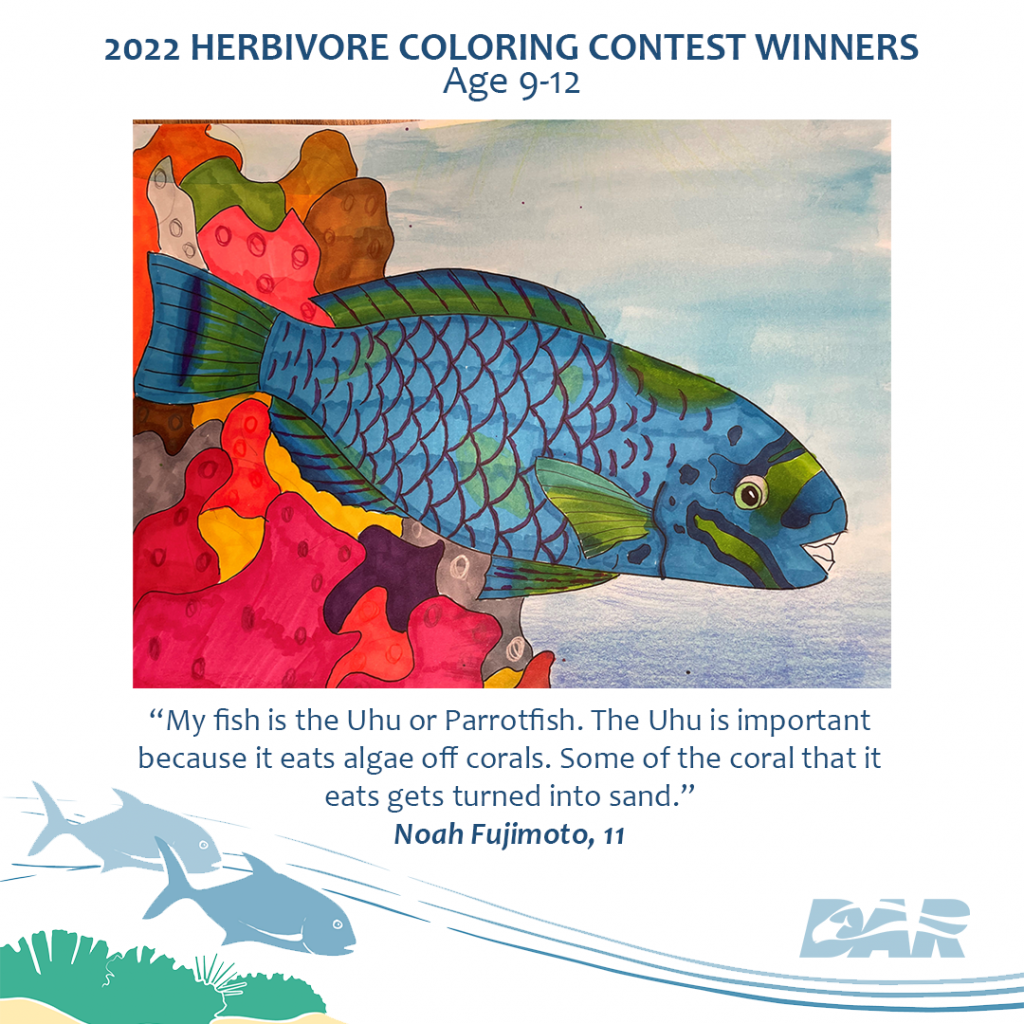
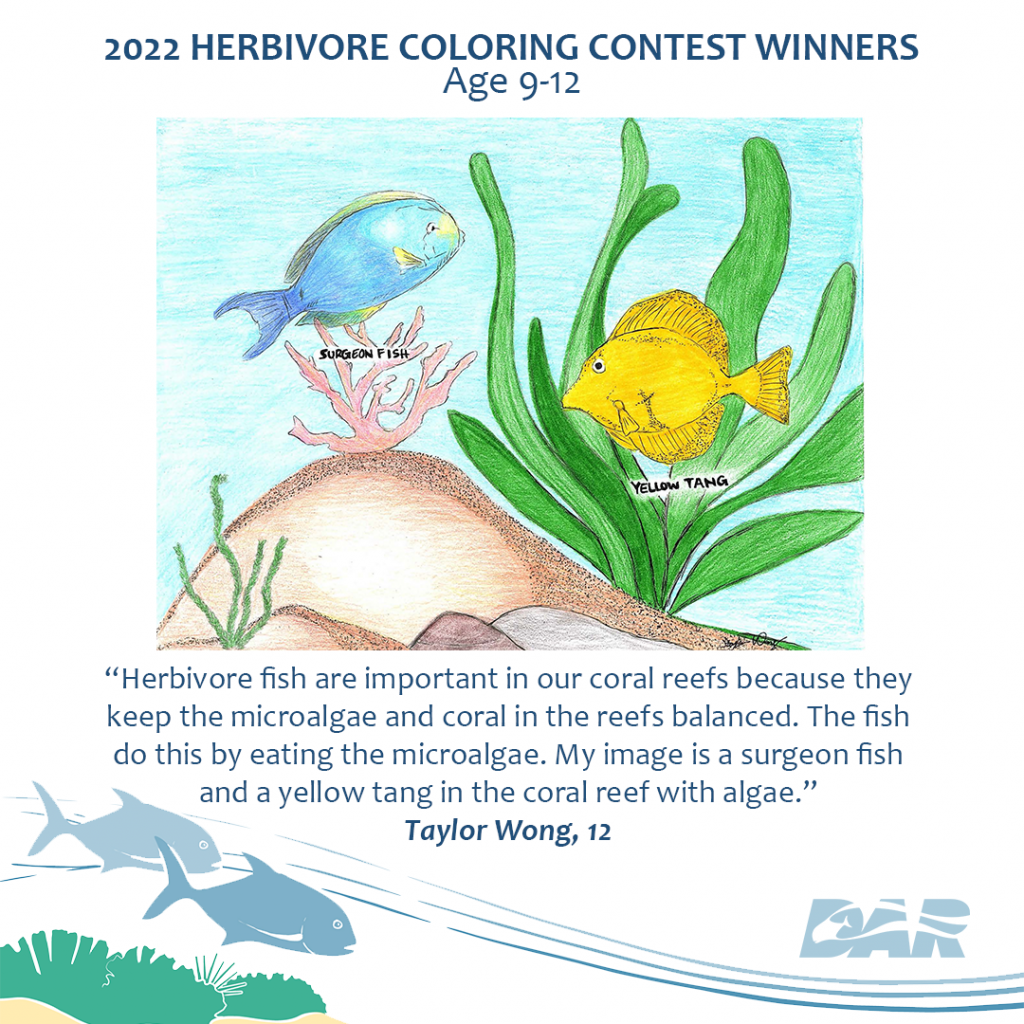
Because we received such beautiful artwork from many talented keiki, we wanted to showcase their work and give everyone the opportunity to view and appreciate their art. Please click here to swim through the fishes in our ocean – through the eyes of our keiki!

